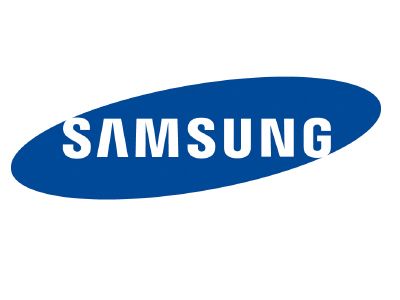Samsung Mass Producing 10nm-Class SAS Solid State Disk
Samsung Electronics is now mass producing a 10nm-class high performance SSD with a SAS interface. This drive, the Samsung SM1623, follows the company's SM1625 (pdf) SAS drive that was released back in 2012. Samsung reports that customers will see more than a 30 percent increase in productivity when compared to the older 20nm-class solution.
"The new Samsung SAS SSD – SM1623 – is designed to meet the immediate need of many global customers for cost-effective, high-capacity SSDs," the press release said. "With this release, Samsung has bolstered its SAS (Serial Attached SCSI) SSD line-up targeted at enterprise customers. Samsung's extensive SSD portfolio for the enterprise market covers all available major interfaces."
According to Samsung, the new SM1623 has an 800 GB density and provides sequential read speeds up to 950 MB/s and write speeds up to 520 MB/s. The drive also has random read speeds of up to 120,000 IOPS and random write speeds up to 26,000 IOPs.
As a comparison, the older SM1625 has densities of 100 GB, 200 GB, 400 GB and 800 GB. The drive also has sequential read speeds up to 925 MB/s and sequential write speeds up to 595 MB/s. The drive even provides random speeds up to 101,000 IOPS and random write speeds up to 38,000 IOPS.
"With our new SAS SSD, our competitiveness in the enterprise storage SSD market has been strengthened," Jeeho Baek, vice president, memory marketing, Samsung Electronics, said. "We are committed to providing storage customers with an exceptionally wide variety of next-generation, high-capacity SSDs in driving the fast-growing enterprise storage SSD market."
Samsung's press release said that the company plans to introduce next-generation SAS SSDs in the near future. This should help expand Samsung's presence in the enterprise SSD market.
Follow Kevin Parrish @exfileme. Follow us @tomshardware, on Facebook and on Google+.
Get Tom's Hardware's best news and in-depth reviews, straight to your inbox.

Kevin Parrish has over a decade of experience as a writer, editor, and product tester. His work focused on computer hardware, networking equipment, smartphones, tablets, gaming consoles, and other internet-connected devices. His work has appeared in Tom's Hardware, Tom's Guide, Maximum PC, Digital Trends, Android Authority, How-To Geek, Lifewire, and others.
-
Marcus52 I understand "Solid State Disk" is used by some instead of "Solid State Drive", but I'll tell you the truth, it makes me think the person has no clue what an SSD is. That's okay if it's my grandmother who is 98 and never even touched a computer, but I have trouble accepting the phrase on a computer hardware site. :)Reply -
patrick47018 ReplyI understand "Solid State Disk" is used by some instead of "Solid State Drive", but I'll tell you the truth, it makes me think the person has no clue what an SSD is. That's okay if it's my grandmother who is 98 and never even touched a computer, but I have trouble accepting the phrase on a computer hardware site. :)
It didn't show a picture but obviously the SSD is disc shaped as opposed to rectangular -
Au_equus the samsung pdf says "Solid-state drives (SSD)" and the pictures show rectangular shaped drivesReply -
patrick47018 Replythe samsung pdf says "Solid-state drives (SSD)" and the pictures show rectangular shaped drives
Like I was being serious -
razor512 Hmm, 10 nm ssdReply
Company buys one
Company calls support because the drive ran through its write cycles while installing windows server
Drive is returned for a refund
Someone at Samsung then cries about how the market doesn't like unreliable SSD's for some reason. -
2Be_or_Not2Be "According to Samsung, the new SM1623 has an 800 GB density and provides sequential read speeds up to 950 MB/s and write speeds up to 520 MB/s. The drive also has random read speeds of up to 120,000 IOPS and random write speeds up to 26,000 IOPs.Reply
As a comparison, the older SM1625 has densities of 100 GB, 200 GB, 400 GB and 800 GB. The drive also has sequential read speeds up to 925 MB/s and sequential write speeds up to 595 MB/s. The drive even provides random speeds up to 101,000 IOPS and random write speeds up to 38,000 IOPS."
If I read correctly, the SM1623 lowers write speeds (MB/s and IOPS) and only slightly increases read speeds. Why would I want this drive?
I'd much rather have 20nm than 10nm for the higher write-endurance factor. If these are coming with a SAS interface, you would think it's meant for enterprise systems. There I'm concerned more with write-endurance and reliability.
I just don't see the benefit of this drive, other than Samsung to say "Look - we have two SSDs with SAS interfaces!"
